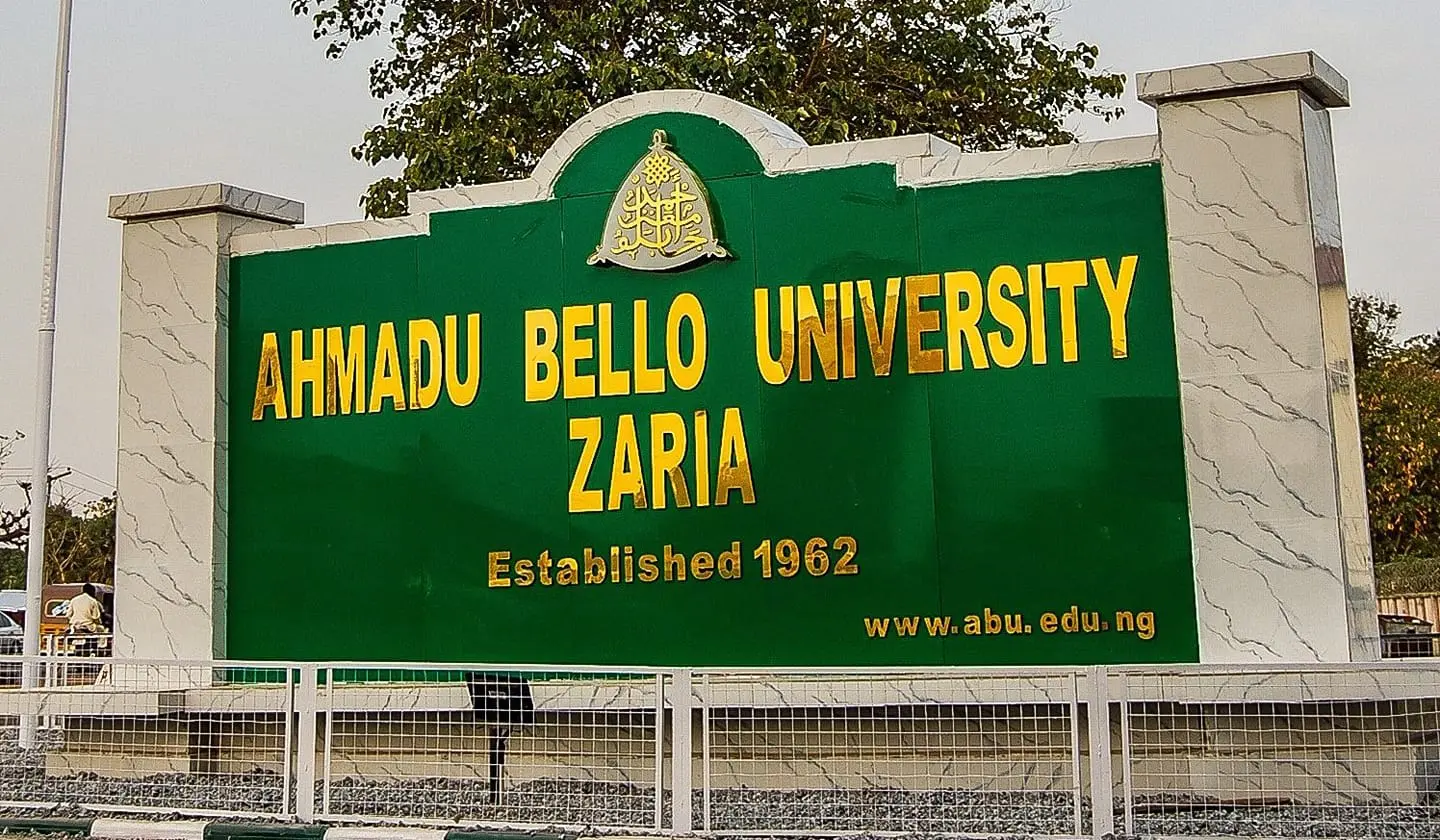
Ahmadu Bello University (ABU), Zaria, has firmly debunked a viral social media video that alleged the institution was secretly engaged in developing nuclear weapons for Nigeria.
In an official statement issued by the university’s Director of Public Affairs, Malam Auwalu Umar, ABU described the video as “false, misleading, and maliciously designed to misinform the public” about Nigeria’s peaceful nuclear research initiatives.
According to the university, the video—created using artificial intelligence—falsely claimed that Nigerian scientists in the 1980s enriched weapons-grade uranium in Kaduna, with alleged technical assistance and centrifuge equipment obtained from Pakistan’s A.Q. Khan network.
Related posts:
- NMDPRA Chief Farouk Ahmed Denies Allegations, Welcomes Probe into Finances and Tenure
- OmoBarca Celebrates Ajeromi Ifelodun Residents in New Month Message, Reaffirms Commitment to Development
- Euracare Responds to Allegations of Medical Negligence, Extends Condolences to Adichie Family
- Imo Police Command dismisses allegations of torture, organ harvesting and killings at Tiger Base Anti-kidnapping Unit
Malam Umar categorically dismissed the allegations as “completely baseless, unsubstantiated, and historically inaccurate.” He clarified that during the 1980s, when the alleged activities were said to have taken place, most of the scientists at ABU’s Centre for Energy Research and Training (CERT) were still undergoing postgraduate training abroad and could not have participated in any uranium enrichment activity.
“The claims are fabricated and without merit,” Umar stated. “At that time, CERT was still in its formative years, and its primary focus was building local capacity for peaceful applications of nuclear science under strict international supervision.”
He added that all of Nigeria’s nuclear research programs, including those conducted at ABU, have always been transparent, lawful, and aligned with global non-proliferation standards.
Umar reiterated that Nigeria remains fully committed to the peaceful use of nuclear energy in accordance with international treaties such as the Nuclear Non-Proliferation Treaty (NPT) and the Pelindaba Treaty, both of which prohibit the development or possession of nuclear weapons by African states.
“ABU has never, at any time, been involved in the development, testing, or design of nuclear weapons. Our work has consistently focused on peaceful nuclear research in areas such as agriculture, medicine, and energy,” he affirmed.
He noted that the university’s Centre for Energy Research and Training, established in 1976, operates in full partnership with the International Atomic Energy Agency (IAEA) and collaborates with reputable institutions across the United States, Russia, China, and other countries.
“All our research activities are open, documented, and regularly reviewed by international regulatory bodies,” Umar emphasized. “There is absolutely no room for secrecy or weapons-related experimentation within our programs.”
Tracing the history of nuclear science education at ABU, Umar highlighted that the institution’s commitment to peaceful nuclear development dates back to its founding era. He recalled that the university’s founder, Sir Ahmadu Bello, the Sardauna of Sokoto, had shown keen interest in atomic research as early as 1960, following his visit to the Oak Ridge National Laboratory in Tennessee, United States.
“The Sardauna’s vision was clear: to ensure that nuclear science serves as a tool for education, economic advancement, and public welfare — not as an instrument of destruction,” the statement read.
Since its establishment, CERT has trained hundreds of Nigerian scientists and engineers in nuclear technology applications for peaceful purposes, including radiation safety, isotope hydrology, food preservation, and medical diagnostics.
ABU emphasized that its nuclear research facilities and activities are periodically inspected and audited by international agencies such as the IAEA to ensure full compliance with safety and non-proliferation standards.
Umar noted that the Centre’s small nuclear reactor — one of only a few in Africa — operates under the IAEA’s direct oversight and is used exclusively for academic research, isotope production, and capacity building in nuclear technology.
“Our reactor and laboratories are operated under the highest safety standards,” he explained. “They are fully monitored by the IAEA, and all our operations are publicly documented. The suggestion that ABU is involved in any clandestine nuclear activity is simply laughable.”
He described the viral video as “a deliberate attempt by mischief-makers to sow public distrust and discredit Nigeria’s genuine scientific progress.”
The university urged the public to exercise caution when consuming or sharing unverified online content, especially those generated by artificial intelligence or anonymous sources.
“Technology can be easily misused to distort facts and manipulate perceptions,” Umar cautioned. “We advise Nigerians to always verify the authenticity of such information through credible sources before drawing conclusions.”
He added that the university is exploring legal and cyber-security options to identify and address the origin of the misleading video and its creators, who, he said, are intent on tarnishing the image of one of Nigeria’s foremost institutions of higher learning.
Reaffirming ABU’s dedication to national growth, Umar said the university remains at the forefront of scientific and technological innovation aimed at improving lives, not endangering them.
“Ahmadu Bello University’s mission has always been to use science and education as instruments of social and economic transformation,” he said. “From nuclear medicine and environmental management to agricultural productivity and energy efficiency, our focus is entirely developmental.”
He concluded that ABU’s legacy and reputation as a centre of excellence in nuclear education and research are built on transparency, collaboration, and global best practices.
“We will continue to uphold Nigeria’s international obligations and pursue knowledge that benefits humanity, not threatens it,” the statement added.
Nigeria is a signatory to several global treaties that restrict the development of nuclear weapons while encouraging peaceful atomic energy use. The country’s Nigerian Atomic Energy Commission (NAEC), established in 1976 — the same year ABU’s CERT was founded — coordinates nuclear energy research and development under strict regulatory oversight.
The nation’s nuclear research programs focus on non-military uses such as electricity generation, medical isotope production, and agricultural enhancement. Nigeria’s Research Reactor-1 (NIRR-1), located at ABU Zaria, is operated for training, neutron activation analysis, and isotope production for cancer diagnosis and treatment.
Experts say the viral video that sparked the controversy reflects a growing trend of misinformation targeting public institutions using AI-generated content to mimic credible sources.
Ahmadu Bello University has thus reaffirmed its unbroken record of transparency and peaceful research in nuclear science, dismissing any suggestion of involvement in weapons-related activities as malicious and false.
By restating its commitment to academic excellence and Nigeria’s international peace obligations, ABU joins the Nigerian government and international partners in maintaining that the country’s nuclear ambitions remain strictly peaceful — focused on development, innovation, and the betterment of humanity.






